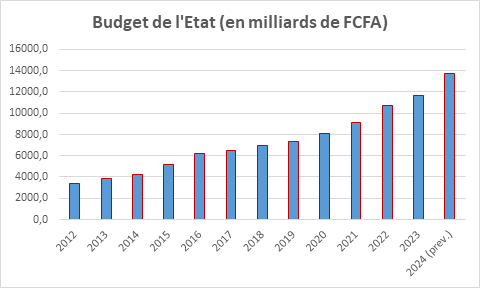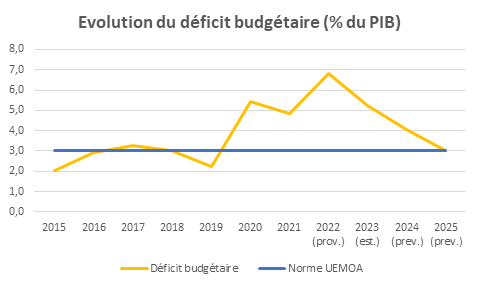- Budget continuously increasing since 2012

Sources: MEPD, MFB
Fiscal Policy
The fiscal policy of the Ivorian government aims to improve the living conditions of the population. To this end, expenditures are primarily directed towards social needs and the construction of infrastructure while maintaining the viability of public finances.
In this context, the state budget has more than tripled in a decade, rising from 3,891.3 in 2012 to 11,694.4 in 2023.
The budget deficit has remained on average below the community standard of 3% of the UEMOA until the end of 2019.
The onset of the coronavirus pandemic, the war in Ukraine, and the challenges related to rising prices and security issues have led to significant deficits. Thus, in 2020, 2021, 2022, and 2023, the budget deficit was recorded at … 6.8% of GDP, and is estimated at 5.2% in 2023. The deficit is expected to improve to 4% of GDP in 2024 and reach the convergence target of 3% in 2025.
The continued improvement in revenue collection and ongoing control of operating expenses should create the necessary budgetary space for financing public investments and social expenditures. Additionally, the analysis of debt sustainability indicates that the risk of over-indebtedness for Côte d'Ivoire remains moderate.

Source: MEPD/DGE, MFB
